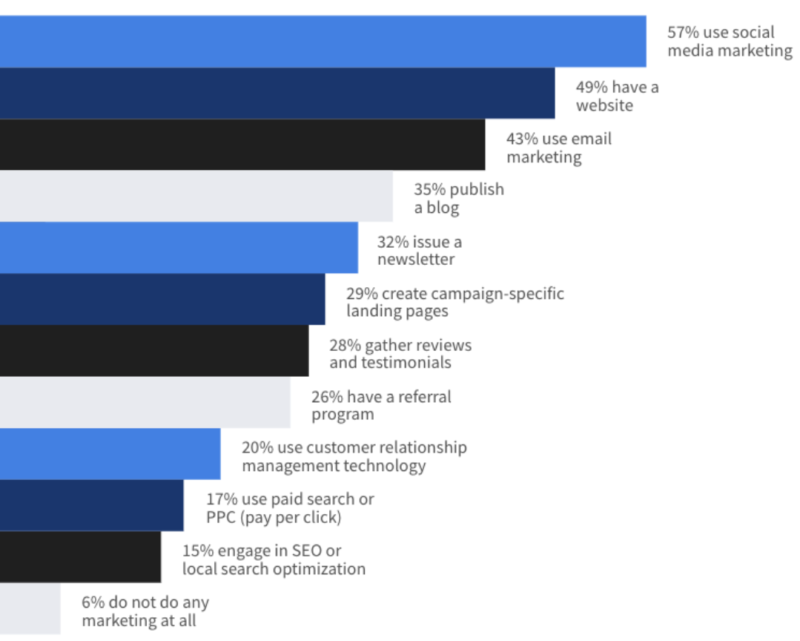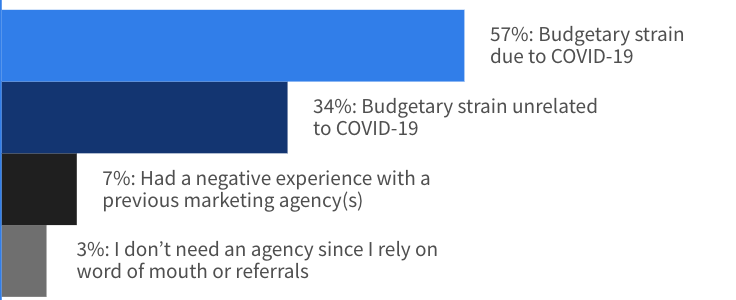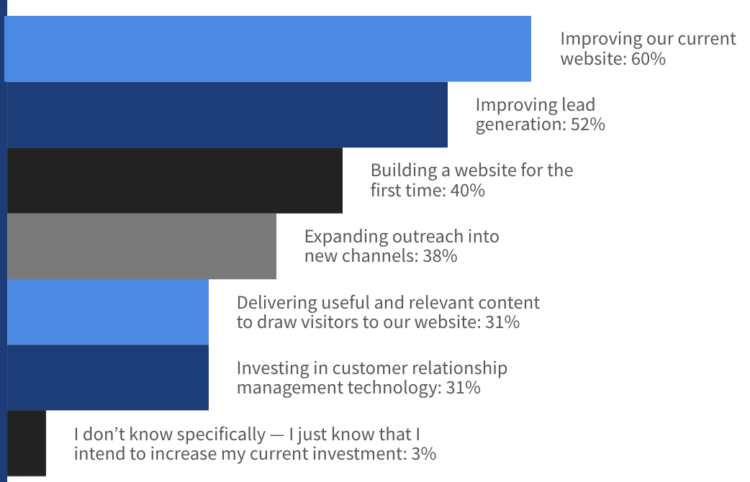Do This, Not That: Your Guide to Successful Marketing in 2021 – Search Engine Journal
Learn what marketing strategies are helping successful businesses thrive and grow in today’s remote-first landscape.
As marketers, we’ve all felt the pressure over the last year to perform in a world that was shaken by COVID-19.
Marketing has grown leaps and bounds in just a short time to accommodate this new “remote-first” landscape.
So, what is working and what should you be doing?
On July 28, I moderated a sponsored Search Engine Journal webinar presented by Madelyn Wing, Head of Partnerships at CallRail.
She shared share insights from their recent survey of 600 small businesses and agencies to learn how COVID impacted their marketing and performance.
Here’s a recap of the webinar presentation.
We all know that 2020 was a wild ride, especially for small businesses. Many companies struggled, while others thrived.
The team at CallRail was curious about what marketing strategies helped successful businesses ride out the pandemic, and where marketers are investing heavily in this remote-first landscape.
They conducted a survey of 600 business owners who live in the U.S. and have under 200 employees from industries such as legal, healthcare, automotive, real estate, home services, financial services, and advertising.
Of the total respondents:
Here’s what they found.
Although SMBs experienced a 38% average drop in annual revenue in 2020, the future is bright: 80% report that their business is now fully recovered from financial challenges brought on by the pandemic.
What contributed to this bounce back?
For 81% of businesses, their marketing strategy was critical to their success during the pandemic.
And even more telling, 71% of businesses believe having a marketing strategy in place was critical to the survival of their business.
When it comes to marketing tactics and channels, here’s what SMBs are doing.
After cross-comparing tactics used by SMBs with those that found the most success during the pandemic, CallRail discovered the channels that were most effective.
Businesses that thrived during the pandemic were:
In addition, most small businesses that engage in marketing say that they have a strategy in place to cover, at least, the next three months.
They also feel that marketing will continue to be crucial in the future and so they are planning to invest more time and energy into developing their strategy than they currently do.
Small business owners who say that their business doesn’t engage in any marketing activity were 125% more likely than average to say they feel their business is destined to fail.
The Takeaway
Having a marketing strategy and function focusing on a digital footprint is key to success in this remote-first, new normal.
You can always start small. Most businesses that thrived are doing things with a low point of entry, like social media, or using a CRM solution.
Business owners are overwhelmed.
Most of them can’t find time to focus on marketing or are going at it all alone.
This leads them to spend valuable time without clarity into what’s actually working and would rather be doing other things.
The Takeaway
Business owners who are going alone are burning out and can’t be sure that their marketing is effective.
How can they find more time and resources to devote to marketing?
One obvious solution is partnering with a marketing agency.
However, some don’t work with an agency due to budgetary constraints:
Many have used an agency before and don’t any longer (largely due to financial strain).
It’s clear that SMB owners understand the value of marketing strategies, but would rather be running their business than spending time executing marketing campaigns.
So what’s stopping them from hiring agencies to take some of the burdens off of their shoulders?
When asked if they would use a marketing agency again in the future, respondents answered with the following:
Small business owners who employ a marketing agency were 20% less likely than average to say that the pandemic negatively impacted their business.
While 79% of respondents saw a significant increase in leads after partnering with an agency.
A full 100% of survey participants who employ a marketing agency said that:
SMB owners who employ a marketing agency report generating, on average, 13 more new leads per week than those who do their own marketing – and 21 more per week than those who hired an internal role to handle the job.
The top three complaints from SMB owners who were unhappy with a previous agency are:
SMB owners want their agencies to provide more value and are willing to pay for it.
In fact, 96% of respondents said that they would be willing to pay an agency for additional services to improve their business outside of marketing – such as customer service/sales training or brand coaching.
SMBs who worked with agencies previously wished their agency had:
The Takeaway
SMB owners are looking for consultative partners who truly understand their business and make data-driven recommendations on how to improve their operations.
Theyʼre looking for more than just leads – they want agencies to help them foster a genuine understanding (and connection) with their target audience.
By recommending key software and helping to improve business processes, agencies not only can add services to their SOWs, but also position themselves as trusted partners who are invested in all aspects of their clients’ businesses.
For example, one agency using CallRail was able to identify the need for sales training for their client’s receptionist.
When asked what their future plans are for their business:
They’ll invest time and money in the following areas:
See all the data CallRail uncovered in their report: Clients tell all: What small businesses need from marketing agencies today.
The pandemic has accelerated the move toward digital – companies had to either adopt a digital presence or face losing out.
Businesses that have a focus on digital strategies feel confident in their ability to succeed.
SMBs and agencies are a perfect match, and there is plenty of opportunities to deepen the partnership.
As businesses increase investment into marketing strategies, focusing on channels and campaigns that are the most effective will maximize that investment.
Leverage call tracking to pinpoint your most effective marketing efforts.
You assign a tracking number to everything you do to better understand what makes your phone ring and help you optimize marketing ROI.
Focus on the calls that unlock opportunities. Local or toll-free numbers can be used, depending on your business need.
For example, some companies may have a statewide or national presence, but want to appear local or even assign a local number to each of their field offices.
While others may want to offer a toll-free option depending on the geography they cover and maybe even the demographics of their target customers.
CallRail offers both options so online and offline efforts can be tracked. This is a big deal because without call tracking, you really can’t tell which offline tactics are working at all.
Online can somewhat be measured through Google Analytics, but without call tracking, there is no connection between the click or visit and the actual phone call. CallRail ties all of that together.
More Resources:
Check out the SlideShare below.
Learn how to optimize your landing pages and make better use of the traffic you already get. Join our upcoming webinar on Wednesday, Dec 15 at 2 p.m. ET, and learn how to rank better on Google SERPs.
Image Credits
All screenshots taken by author, August 2021
By clicking the “Sign Up” button, I agree and accept the Content Agreement and Privacy Policy of Alpha Brand Media. Please check your inbox for our confirmation email.
Heather has over 20 years of industry experience and is the Director of Marketing at Search Engine Journal. Having worked … [Read full bio]
Subscribe to our daily newsletter to get the latest industry news.



